Everyone wants a seat at the table, Localization brought snacks… does it help us get one?
I’ve been thinking about something lately and want to share it with anyone in localization who’s ever felt like they’re not doing enough.
We often hear (or say, guilty to be in that group!) that if we “show up early” in the process, speak about the value of localization, and influence stakeholders, everything will fall into place. Localization will be embedded. Everyone will remember to include us.
But…. It’s not that simple.
Why progress in Localization isn’t always linear
Many teams, from content to design to research, are working hard to participate in the early decision-making process. It’s crowded, and not everyone gets in every time. Even if we do our work very well, have metrics, and explain the impact of our work and how important it is to open markets, a product team is juggling many, many different competing priorities.
Think about a game team planning its next release. They might be juggling:
Fixing bugs
Delivering new features promised to leadership
Managing LiveOps tied to seasonal or regional events
Responding to player feedback from the last update
Improving performance on lower-end devices
Adjusting game balance or progression systems
Running A/B tests for monetization
Preparing accessibility updates
Dealing with security or legal compliance tasks
And so on ….
And somewhere in between, localization is asking:
“Can we talk about Globalization activities early on?”
It’s a fair ask, but it’s one of many.
So, what can we do when showing up and doing all the “right” things doesn’t lead to immediate results?
We adapt. We protect our energy. And we play the long game.
Here are a few principles I keep coming back to
Play the long game. Maybe you gave a localization intro talk to a team six months ago, and nothing came from it. That’s fine. They might ask for your input the second time you show up. It builds over time, don’t expect one meeting to change everything.
Build alliances, not just processes. Instead of only sending documentation or guidelines, have a quick coffee chat with someone from product marketing. If they understand what you do, they’ll think of you when timing is tight.
Accept the cycles. You might onboard a team today, and in 3 months, there’s a reorg. Don’t be discouraged, keep your template ready and reuse your onboarding deck. It’s not lost work; it’s reusable groundwork.
Choose your battles. If you see 10 things going wrong, focus on the 2 that will make the most noise if they go live. You can’t fix everything. That’s OK. Prioritize impact over perfection.
Don’t internalize the gaps. When someone forgets to loop you in, it’s not personal. Most of the time, it’s just bandwidth. Send a friendly message, offer help, and move on. Don’t carry that frustration for days.
Celebrate the small wins. If a Product owner adds localization as a bullet point in a roadmap for the first time, that’s a win! If someone uses your glossary without being asked, that’s a win, too! Progress often looks small, but it adds up.
Be where the work is happening. Join that Slack channel, even if it’s not about localization. Just being there when questions pop up makes a difference. You become part of the team, not a last-minute checkpoint.
Use curiosity as a tool. Instead of saying “You should involve localization earlier,” ask “What’s the timeline for launching this in other markets?” That simple shift invites collaboration, not correction.
Document wins quietly. Keep a running list of times your involvement prevented issues or added value. You don’t have to shout about it every time, but you'll have your story ready when someone asks what localization is doing.
Find your internal champions. That one designer who always tags you? Nurture that relationship. Champions inside teams open doors you can't push open alone.
Let go of the need to fix everything. Sometimes, the timing’s off, or people are just too swamped. You can offer help and remind them, but you still cannot be included. That’s not a reflection of your effort; it’s just how things go sometimes.
Click here to download the infographic
In conclusion
So if localization isn’t embedded from the beginning or we’re left out of the loop again, it’s not our fault. We’re not doing it wrong. We’re not invisible.
We’re navigating a system that’s constantly moving.
Let’s stop pretending that influencing once is enough or that persistence guarantees success. It doesn’t. It takes years. And yes, it’s exhausting.
Localization isn’t a checkbox; it’s a relationship. And like any relationship, it takes time, effort, and patience. Keep showing up. It matters.
Change is slow. Systems are complex. And your effort still matters, even when the results don’t come as quickly as we’d like.
Hang in there, and trust the process!
@yolocalizo
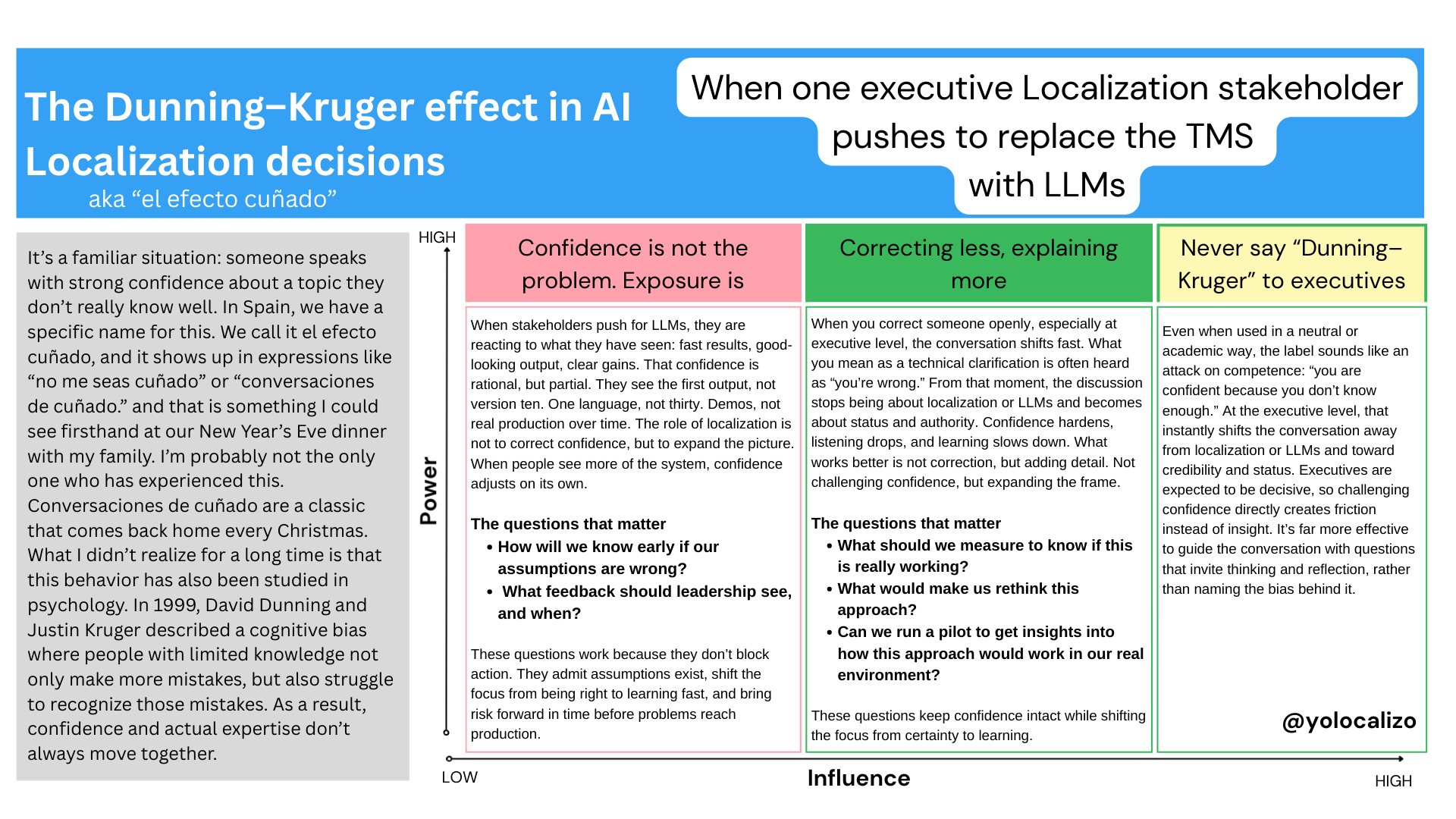


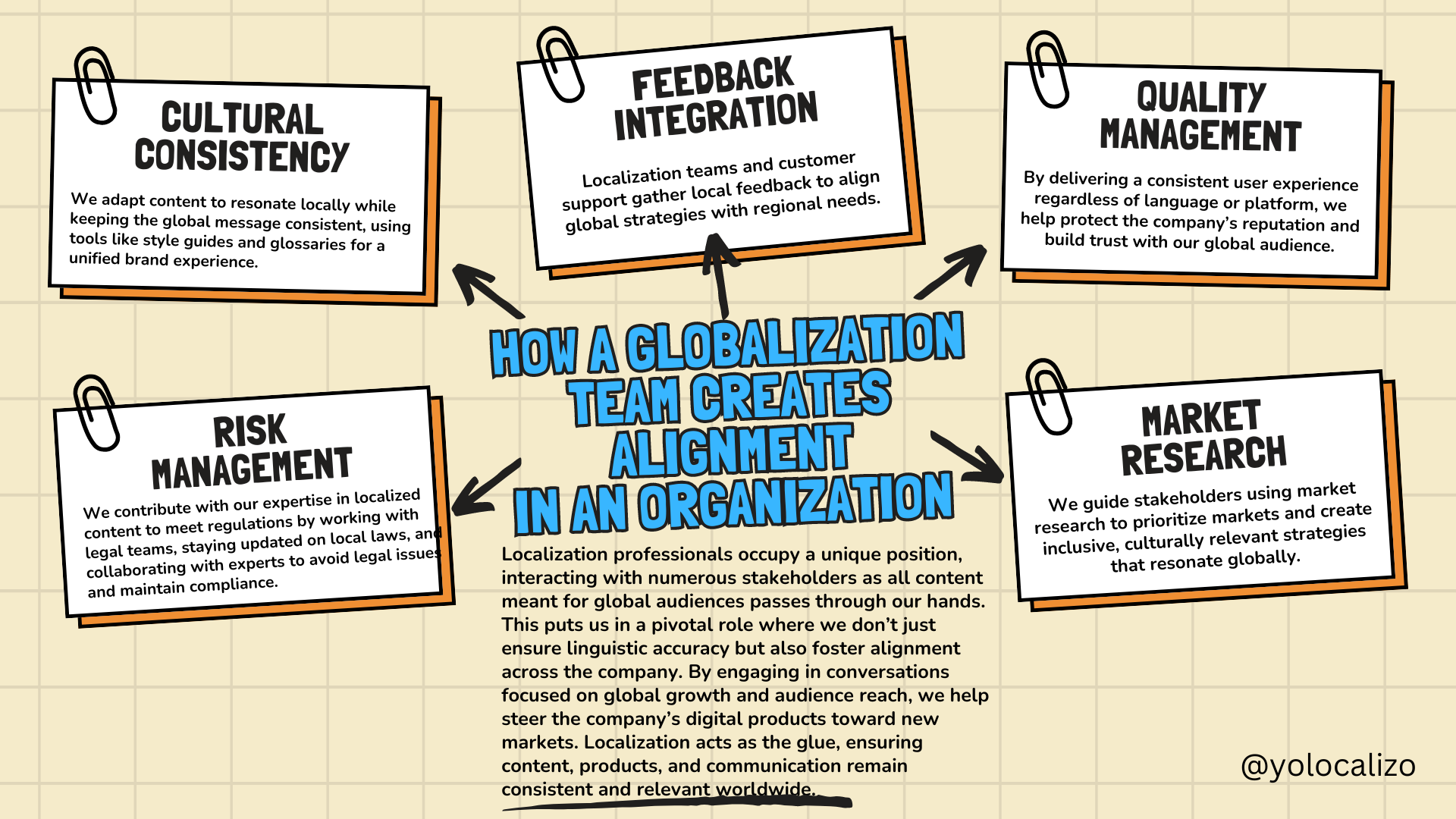
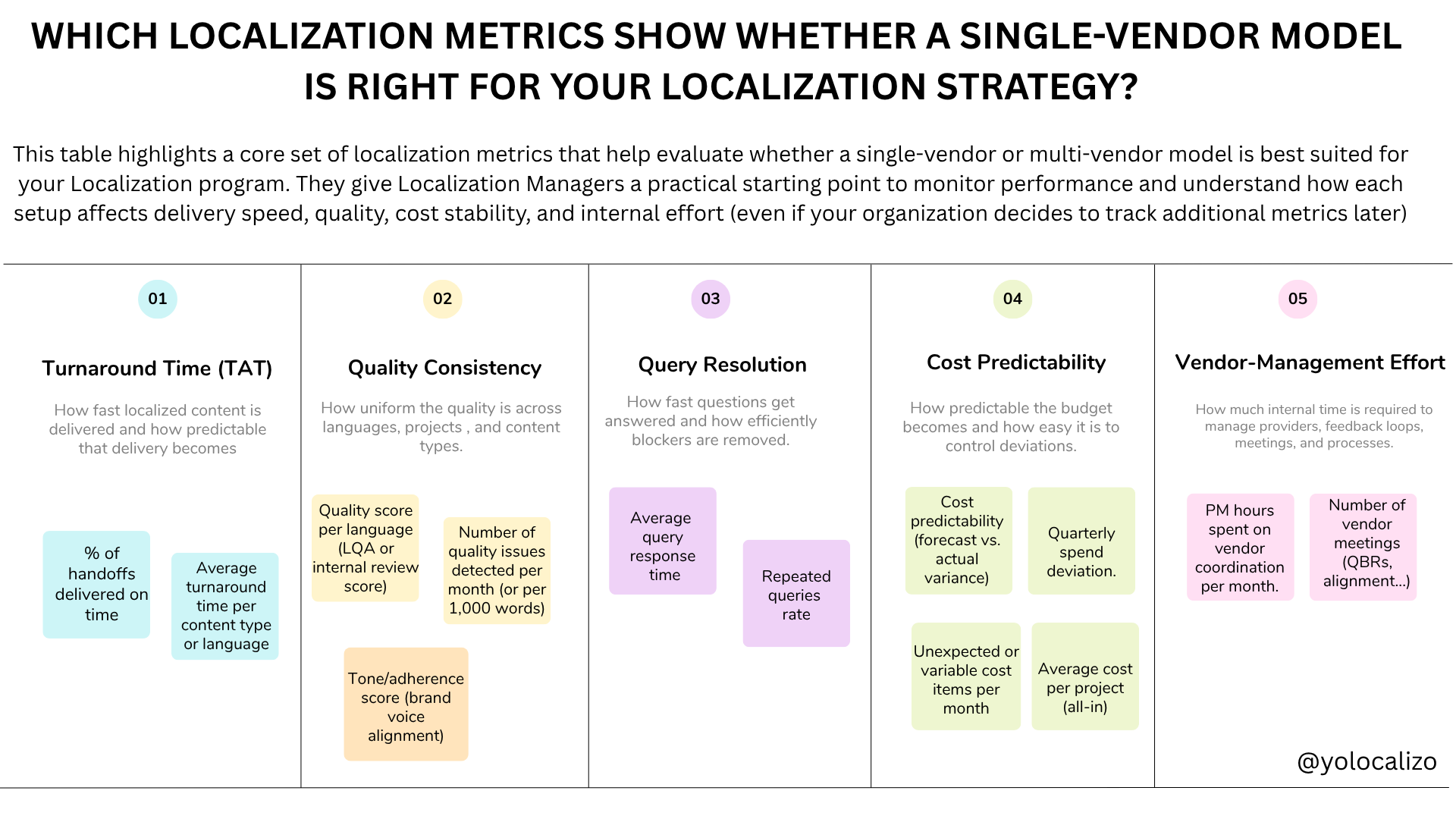





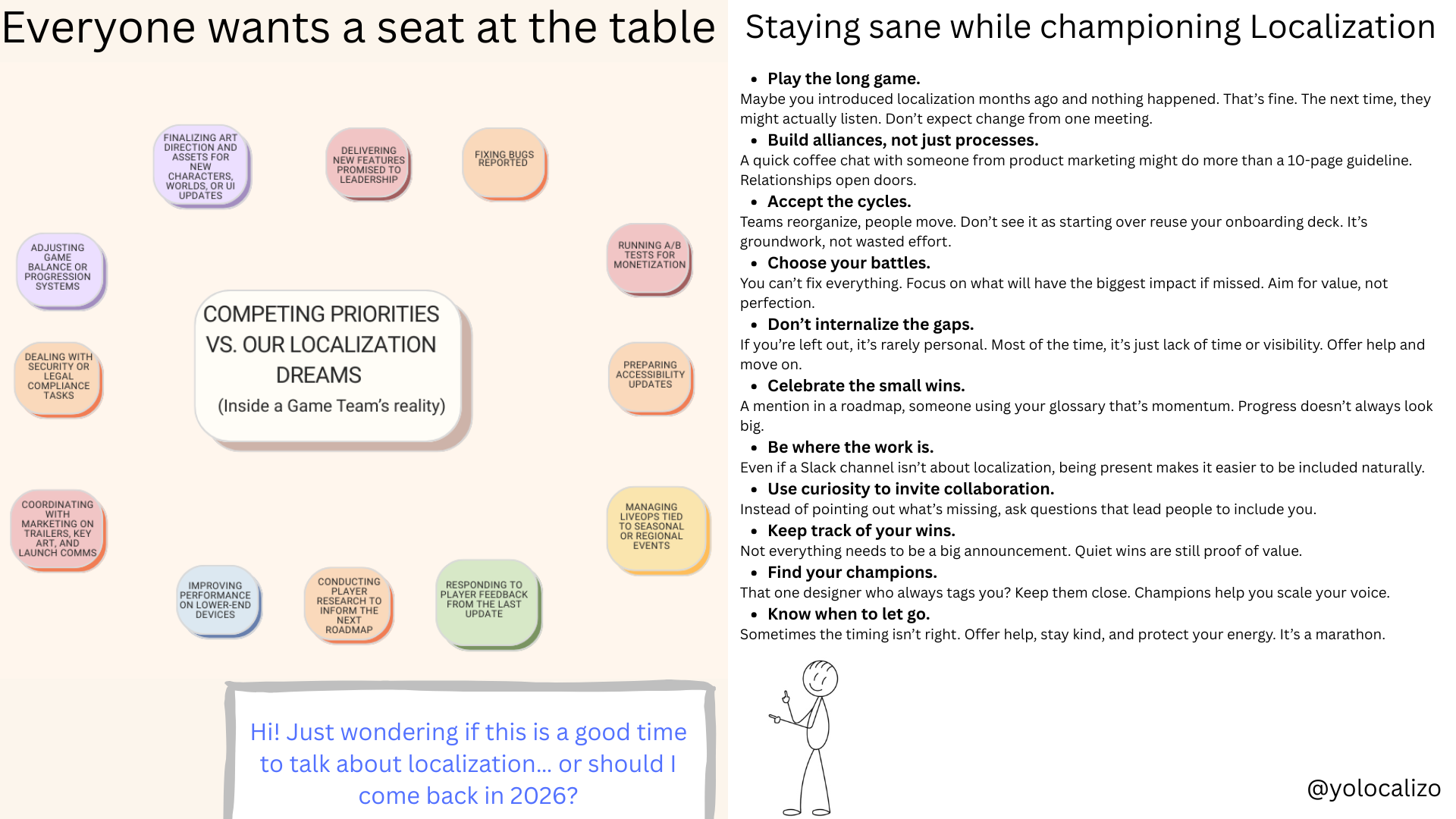
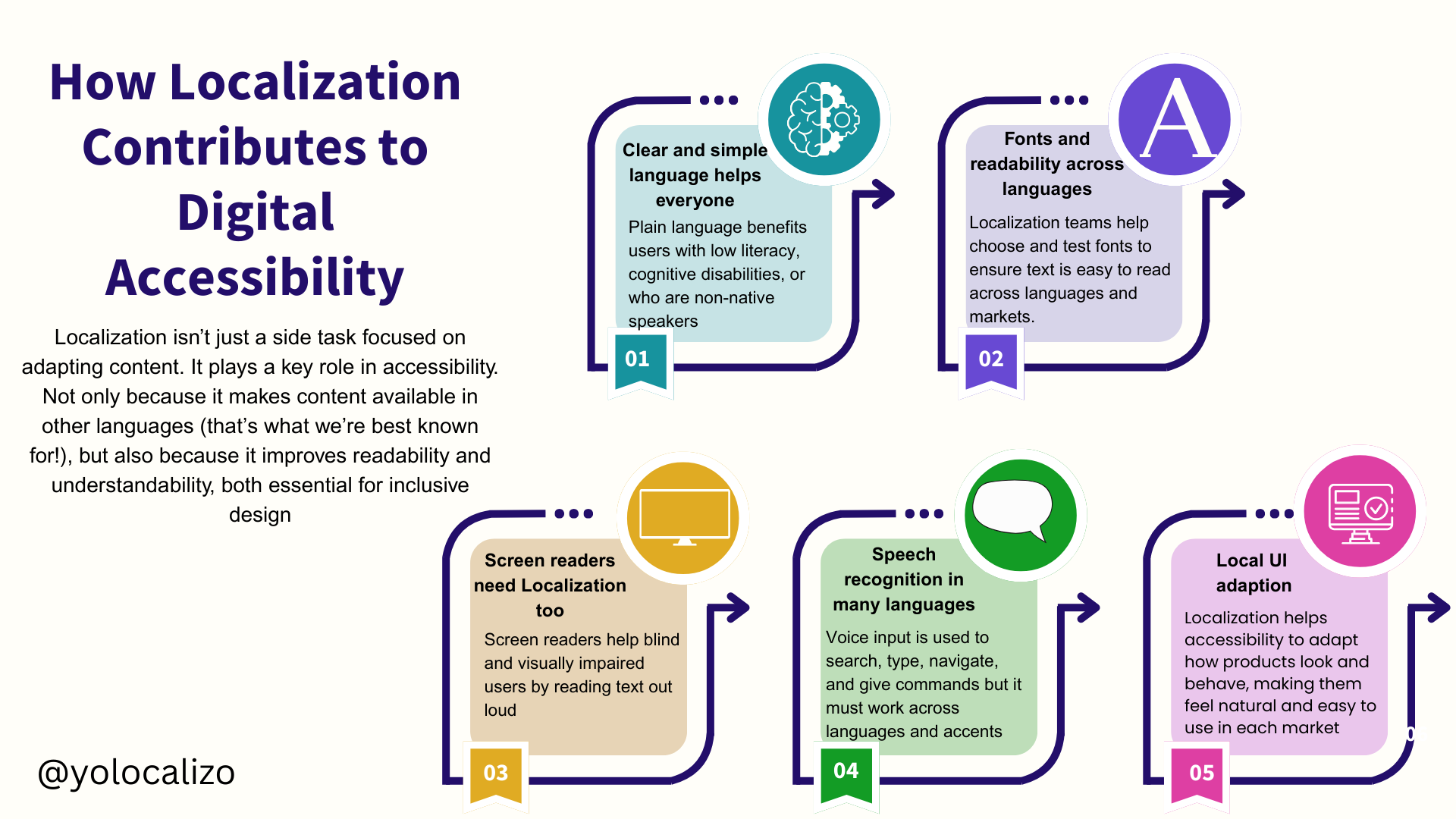

Localization professionals often focus on translation quality and best practices, but decision-makers care about customer impact and revenue. If we frame localization as a cost, it risks being deprioritized. Instead, we must highlight its value driving engagement, trust, and business growth.